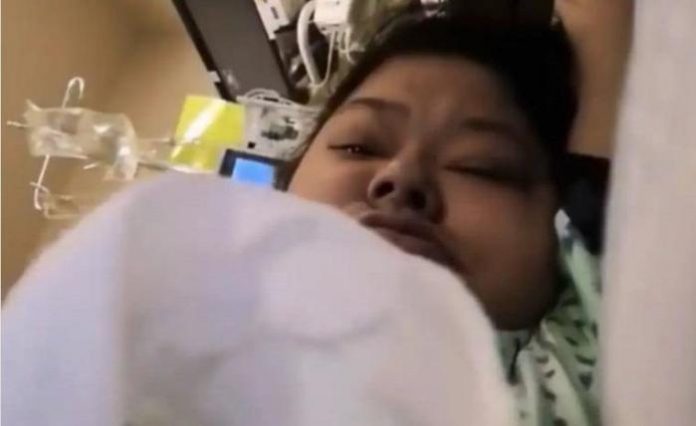Last weekend, we were commenting to a friend that it’s a surprise that, unlike the one defence people have against police brutality, there aren’t more videos documenting medical violence suffered by patients in health institutions. We had no idea that, two days later, Joyce Echaquan, an Atikamekw woman from Manawan, would do exactly that. The video she took — moments before her death — exposed the brutal, racist and sexist violence she was subjected to as an Indigenous woman at Joliette hospital. She was 37 years old and leaves an entire community in mourning. We must never forget her name.
This isn’t the first time such a horrific story has made headlines. In 2016, Kimberly Gloade, a Mi’kmaq woman living in Montreal, died weeks after effectively being refused emergency care at the McGill University Health Centre because she did not have her RAMQ card. In 2008, Brian Sinclair, an Anishnaabe man living in Winnipeg, was “ignored to death” while in the waiting room of the emergency department at the Health Sciences Centre there. Yet, for all the stories that make headlines, there are thousands of others that don’t.
Indigenous people are physically restrained when many non-Indigenous patients would be reassured; they are refused pain medication because they’re considered to be “drug seeking”; they are coerced into terminating a pregnancy or having a tubal ligation; they are dismissed as being “non compliant” with prescribed treatments or as “no shows” to follow up appointments when structural issues — lack of health-care resources in or near Indigenous communities, language and cultural barriers — prevent them from getting the care they need.
Those of us working in health care know very well that what Echaquan went through was not an isolated incident. Systemic racism against Indigenous people is not simply endemic within the health-care system, it is normalized and perpetuated throughthe hidden curriculum, an informal set of cultural norms and behaviours.
This is the product of deep-rooted and long-standing medical colonialism, where health-care providers, not least physicians, have been instrumental in the colonial project: from residential schools to Indian hospitals; mass tuberculosis evacuations to forced sterilization programs; nutritional experiments to abusive surgical procedures. For Atikamekw communities in Quebec’s Upper Mauricie region, including Manawan, there is a longer history of genocidal medical practices at the hospital in Joliette: according to an Enquête investigation in 2017, not a single family from these communities was spared from the pain of a child disappeared into the medical system during the 1960s and 1970s.
Exactly a year ago, the Viens commission released its final report. Many of its 142 recommendations apply to the health-care sector. The Royal Commission on Aboriginal Peoples (1996), the Truth and Reconciliation Commission (2015), the National Inquiry into Missing and Murdered Indigenous Women and Girls (2019), among others, have also issued a significant number of recommendations, many specific to health care and to the Quebec context.
There have been many calls over the past few days for an investigation, and one of the nurses who yelled racist slurs has been fired. But what is deeply needed is not more reports. While individuals must be held accountable for their actions, singling out “bad apples” will not resolve structural issues.
Premier François Legault’s denial of the existence of systemic racism in Quebec is not only magical thinking; it allows discrimination to thrive. We can no longer debate about whether systemic racism exists. We need to act now to put an end to it. Otherwise, Indigenous lives will continue to be stolen.
Nazila Bettache in an internist and assistant professor in the Faculty of Medicine at Université de Montréal. Samir Shaheen-Hussain is a pediatric emergency physician, assistant professor in the Faculty of Medicine at McGill University and author of Fighting for a Hand to Hold: Confronting Medical Colonialism against Indigenous Children in Canada. Both are members of the Caring for Social Justice Collective.
































